Why the Competition & Markets Authority won’t renew the AA / BA transatlantic JV until 2024
Links on Head for Points may support the site by paying a commission. See here for all partner links.
2020 was to be an important year for British Airways and American Airlines as their transatlantic joint venture (together with Finnair and Iberia) was up for renewal with competition regulators.
It’s difficult to overstate just how important this joint venture is for both BA and AA. London to New York brought in revenues of over $1 billion for BA alone in 2018.
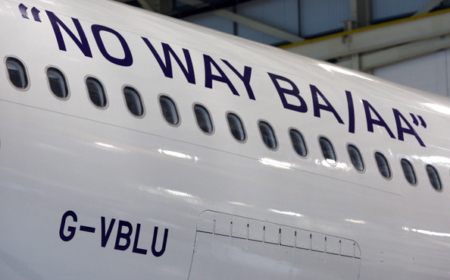
American Airlines is likely to earn a similar amount from the route, as all transatlantic profits are shared proportionally between British Airways, American Airlines, Finnair and Iberia.
And this is just one of the routes covered by the joint venture …..
How do Joint Ventures work?
When you book a flight to New York on British Airways, British Airways does NOT get your money. It goes into a big pot, together with all the money that American, Iberia and Finnair (and soon Aer Lingus) receive for selling flights between Europe and North America. This money is then shared out between the airlines using an unknown formula.
Clearly, this removes most incentives for competition between the airlines. The only real competition is working out how to juggle the formula in order to take more than your fair share from the overall pot …. after all, if you agreed to pool your salary with everyone else on your street and split it later, you wouldn’t be queuing up to do any overtime.
For obvious reasons, joint ventures like this must be approved by competition regulators. In addition to revenue sharing, JVs allow airlines to co-ordinate schedules and pricing.
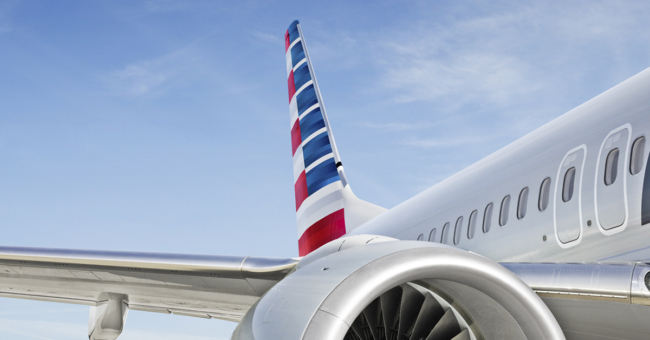
The AA/BA Joint Venture is up for renewal
The transatlantic Joint Venture was originally approved in 2010 for a ten year period. In 2018, the Competition & Markets Authority began its investigation into a possible renewal.
In May, it published its provisional findings and found that there was not sufficient competition on select routes between Europe and the US.
The CMA proposed that that the joint venture would have to surrender slots if a competitor wished to launch flights to selected destinations. These included Boston, Dallas, Miami and Philadelphia.
If no other airline wanted to launch flights to these destinations then the joint venture would have to fly a minimum required number of seats per year on the routes. It could not cut capacity in order to force up fares.
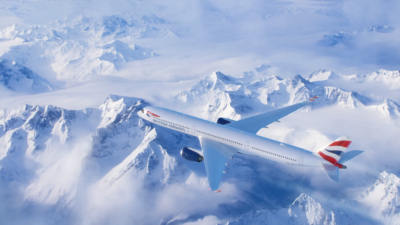
This plan has now been junked
Given the disruption caused by the coronavirus pandemic, the Competition & Markets Authority has now decided to extend the current joint venture for another three years until March 2024.
It is concerned that its original findings are now worthless. It is very likely, for example, that Norwegian will never return to long-haul flying from London Gatwick. The presence of Norwegian was one of the reasons that the CMA was relatively lenient in its preliminary findings.
There is also no guarantee that JetBlue will still launch its promised services between London and New York / Boston.
Current ‘remedy’ flights operated by Delta and Virgin Atlantic to Boston, Dallas and Miami will continue for an extra year until March 2022. A tender will then go out which would allow another airline to bid for the right to operate, in competition with BA and AA, until March 2024.
An additional tender will take place this year to receive slots from BA or AA to compete against them on the Boston route. Norwegian has surrendered its slots and a three year deal, from March 2021, will be on offer.
The CMA said in a statement this week:
“The CMA cannot be confident that its assessment of competition concerns, and any remedies that might address them, would adequately reflect the post-pandemic state of competition in the longer term. It has therefore decided not to accept the proposed 10 year binding commitments.“
Delaying the decision for three years will let British Airways and American Airlines off the hook in the short term. In the medium term, the deferral is more of a threat. The CMA will come down harder in three years time if it looks like competition on transatlantic routes has reduced.
You can read more on the CMA website here.

How to earn Avios from UK credit cards (April 2024)
As a reminder, there are various ways of earning Avios points from UK credit cards. Many cards also have generous sign-up bonuses!
In February 2022, Barclaycard launched two exciting new Barclaycard Avios Mastercard cards with a bonus of up to 25,000 Avios. You can apply here.
You qualify for the bonus on these cards even if you have a British Airways American Express card:

Barclaycard Avios Plus Mastercard
Get 25,000 Avios for signing up and an upgrade voucher at £10,000 Read our full review

Barclaycard Avios Mastercard
5,000 Avios for signing up and an upgrade voucher at £20,000 Read our full review
There are two official British Airways American Express cards with attractive sign-up bonuses:

British Airways American Express Premium Plus
25,000 Avios and the famous annual 2-4-1 voucher Read our full review
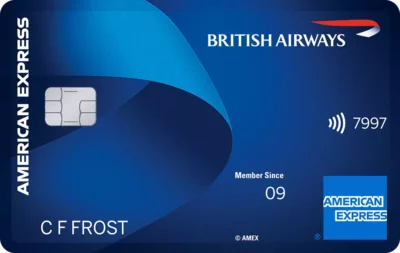
British Airways American Express
5,000 Avios for signing up and an Economy 2-4-1 voucher for spending £15,000 Read our full review
You can also get generous sign-up bonuses by applying for American Express cards which earn Membership Rewards points. These points convert at 1:1 into Avios.

American Express Preferred Rewards Gold
Your best beginner’s card – 20,000 points, FREE for a year & four airport lounge passes Read our full review

The Platinum Card from American Express
40,000 bonus points and a huge range of valuable benefits – for a fee Read our full review
Run your own business?
We recommend Capital on Tap for limited companies. You earn 1 Avios per £1 which is impressive for a Visa card, along with a sign-up bonus worth 10,500 Avios.
SPECIAL OFFER: Until 12th May 2024, the Capital on Tap Business Rewards Visa card is offering a bonus of 30,000 points, convertible into 30,000 Avios. You must have a Limited Company to apply. Click here to learn more and click here to apply.

Capital on Tap Business Rewards Visa
Huge 30,000 points bonus until 12th May 2024 Read our full review
You should also consider the British Airways Accelerating Business credit card. This is open to sole traders as well as limited companies and has a 30,000 Avios sign-up bonus.
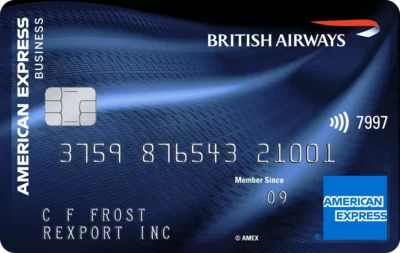
British Airways Accelerating Business American Express
30,000 Avios sign-up bonus – plus annual bonuses of up to 30,000 Avios Read our full review
There are also generous bonuses on the two American Express Business cards, with the points converting at 1:1 into Avios. These cards are open to sole traders as well as limited companies.

American Express Business Platinum
40,000 points sign-up bonus and an annual £200 Amex Travel credit Read our full review

American Express Business Gold
20,000 points sign-up bonus and FREE for a year Read our full review
Click here to read our detailed summary of all UK credit cards which earn Avios. This includes both personal and small business cards.



 Rob
Rob 




Comments (24)